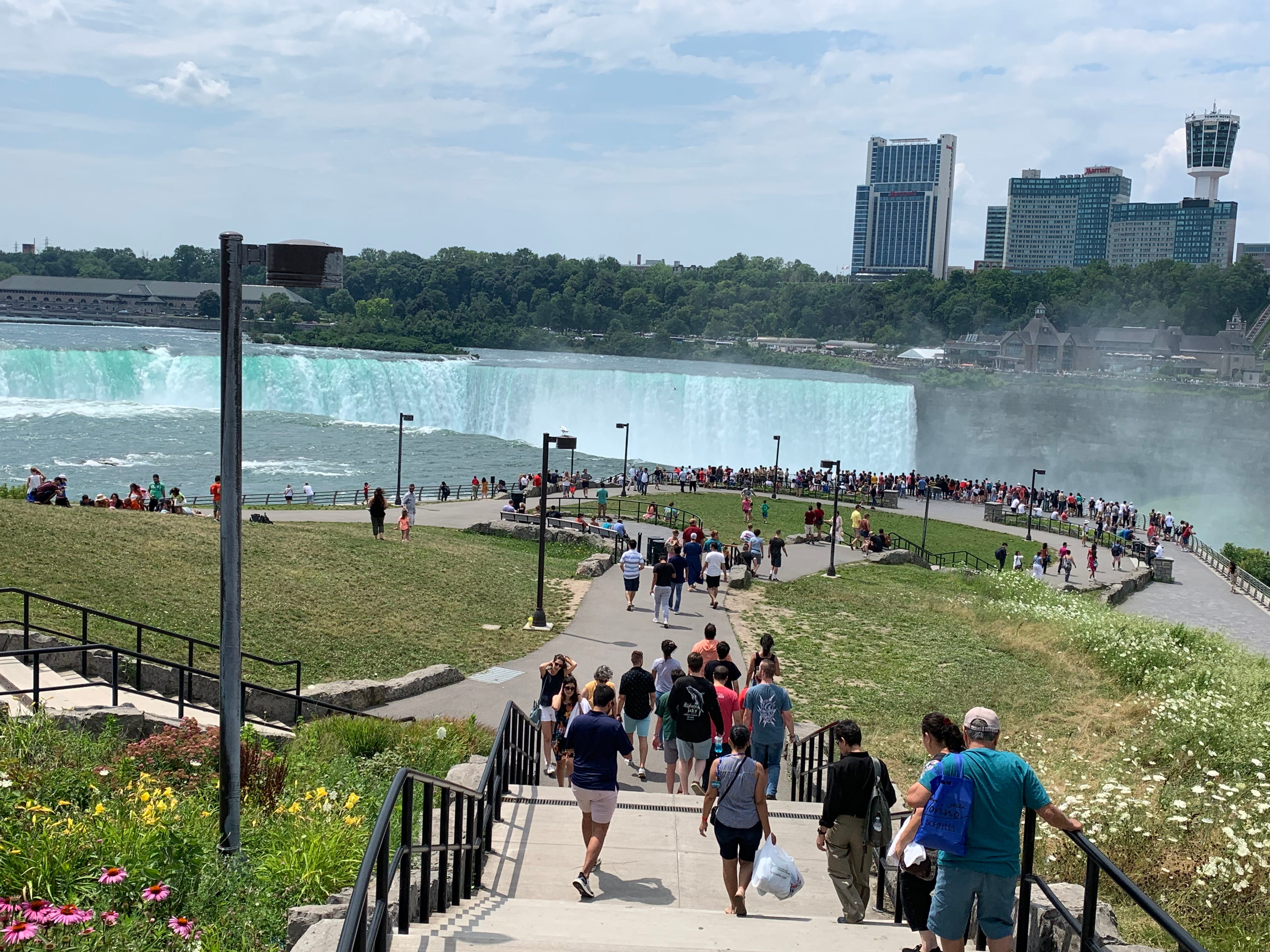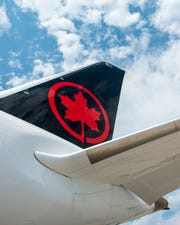After 15 months of strict travel restrictions along its southern border, the Canadian government could be loosening its border restrictions in just two weeks, according to city officials.
A virtual meeting between Canadian border city mayors and Public Safety Minister Bill Blair on May 28 included discussions on easing COVID-19 cross-border policies once the current restrictions expire on June 21, Niagara Falls, Ontario Mayor Jim Diodati told USA TODAY.
“Hope is not a good strategy – we need a plan,” Diodati said.
The Canadian federal government has yet to confirm any firm plans for easing border restrictions with the U.S., and a spokesperson from the Public Safety and Emergency Preparedness declined to offer an interview. Blair’s meeting with border city mayors was first reported by Politico.
Terrapin Point at Horseshoe Falls, also known as Canadian Falls, are divided by the U.S.-Canada border. (Photo: Gary Garth/Special to USA TODAY)
When are the Canadian borders reopening?
Leisure travel across the U.S.-Canada border has been prohibited since March 2020. Those who cross must prove that they are crossing for essential reasons, test for COVID-19 in advance and quarantine for a minimum of 14 days upon arrival, regardless of vaccination status.
Canadian Prime Minister Justin Trudeau told the Canadian Broadcasting Corporation last month that he would prefer to wait until 75% of the country is vaccinated before fully reopening the border, but his administration has been pressured to hash out a plan to reopen borders quicker than that.
Canada, Mexico travel: borders with neighboring countries to remain closed to nonessential travel through June 21
Border restrictions: Airline trade groups urge Canada to put border-reopening plans in motion by June 21
Despite talk of an imminent change, Trudeau reiterated at a Tuesday press conference that border restrictions will be focused on the number of Canadian citizens who are fully vaccinated.
One dose “is still an incomplete protection. We need people to get two doses of their vaccines,” the prime minister said.
A plane flying for Air Canada, the country's national airline. (Photo: Air Canada)
As of Friday, 56.8% of the Canadian population had received at least one dose of the COVID-19 vaccine and 5.7% had been fully vaccinated, according to the Canadian government’s website. The Canadian government has approved the Moderna, Pfizer-BioNTech, AstraZeneca and Johnson & Johnson COVID-19 vaccines.
Diodati said during the May 28 meeting, he was told the government was considering easing border restrictions after 75% of Canadians had at least one shot and 20% were fully vaccinated – a milestone that the government expects to reach by June 21.
Restrictions could ease further on July 21 as long as 75% of Canadians are fully vaccinated, Diodati added.
Plans were not yet finalized during the meeting last month, but Diodati said the group also discussed the possibility of utilizing a vaccine passport.
“If that’s what it takes to open things up, I’m OK with it,” he said. “That kind of thing serves as a further incentive to encourage people to get both their shots.”
Windsor, Ontario Mayor Drew Dilkens, also present at the May 28 meeting, added that it “wasn’t clear” exactly when or how restrictions would be eased.
“(Blair) described it as our government wanting to find symmetry with the U.S. on reopening, but it may not be possible,” Dilkens said. “And so if the U.S. just does a full reopen, I would expect Canada will maintain some level of restriction on reentry with the easiest pathway to enter for those that are fully vaccinated.”
Pressure to reopen the border
The U.S.-Canada border has been closed to nonessential travel, but there have been exceptions.
Earlier this week, the NHL received an exemption from Canadian health officials to allow cross-border travel for teams starting in the semifinal round of the Stanley Cup playoffs.
The MLB is also trying to get the Toronto Blue Jays permission to reenter Canada; the team is currently playing in Buffalo, New York. Blue Jays president Mark Shapiro has said it’s possible the team may return to Toronto at some point this season but cautioned that the decision would depend on the easing of border regulations.
Stanley Cup updates: Canada grants NHL cross-border travel exemption for playoffs
If Canada does open its borders to more travelers this month, it would come just in time for the summer travel season. Diodati said Niagara Falls typically gets 14 million annual tourists, a quarter or who are American, and represent about half of the local tourism industry’s revenue.
“We need the borders open,” Diodati said. “We want to be ramping up so that certainly by the July 1, 4, long weekend, we want to have a lot of things up and running. … We lost a good deal of last year’s tourism season. We cannot afford to lose this one. It’s been devastating.”
Source: Read Full Article

